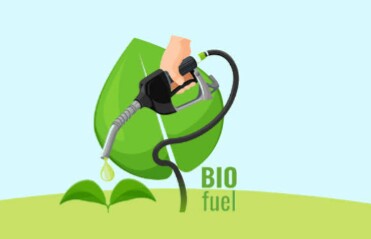Biofuel
Sustainable bioenergy presents a promising solution for developing countries.
Bioenergy derived from organic matter, such as agricultural residues, forestry waste, and energy crops, offers an opportunity to meet energy needs while promoting sustainable development, reducing greenhouse gas emissions, and fostering economic growth.
In this article, we explore the importance of sustainable bioenergy in developing countries and its potential benefits and challenges.
Outlook Sustainable Bioenergy in Developing Countries
1. Energy Access and Rural Development
Many developing countries face challenges in providing reliable and affordable energy access, particularly in rural areas. Sustainable bioenergy can play a crucial role in addressing these energy gaps. Locally available biomass resources can be converted into biofuels or used for decentralized power generation, providing clean energy options to communities.
This not only improves energy access but also stimulates rural development by creating job opportunities, supporting local economies, and enhancing livelihoods.
2. Climate Change Mitigation and Reduced.
le bioenergy offers a viable pathway for developing countries to reduce greenhouse gas emissions and contribute to global climate change mitigation efforts.
By replacing fossil fuels with biofuels or utilizing biomass for heat and electricity generation, developing countries can significantly reduce their carbon footprint. However, it is important to ensure that bioenergy production follows sustainable practices to avoid unintended environmental consequences, such as deforestation or land degradation.
3. Waste Management and Environmental Benefits:
Developing countries often face challenges in managing agricultural waste, forestry residues, and other organic waste streams. Sustainable bioenergy provides an opportunity to utilize these wastes as valuable resources. By converting waste biomass into bioenergy, developing countries can address waste management issues, reduce pollution, and prevent the release of harmful greenhouse gases from decomposing organic matter. This contributes to both environmental and public health benefits.
4. Agricultural Productivity and Rural Resilience:
Energy crops grown for bioenergy production can enhance agricultural productivity and promote rural resilience. By diversifying income streams, farmers can reduce their dependence on single crops and generate additional revenue from energy crop cultivation. This, in turn, improves agricultural resilience and supports food security. However, it is important to ensure that energy crop cultivation is done sustainably, without compromising food production or causing land use conflicts.
5. Knowledge Transfer and Capacity Building:
The development of sustainable bioenergy in developing countries requires knowledge transfer, technology sharing, and capacity building. International cooperation and partnerships play a vital role in supporting developing countries in adopting sustainable bioenergy practices.
This includes sharing best practices, providing technical expertise, and facilitating technology transfer to ensure that bioenergy projects are implemented in an environmentally and socially responsible manner.
Conclusion Sustainable Bioenergy in Developing Countries
Sustainable bioenergy holds great potential for promoting sustainable development, reducing emissions, and improving energy access in developing countries.
By harnessing locally available biomass resources, these countries can meet their energy needs while addressing environmental challenges and fostering economic growth.
However, it is essential to prioritize sustainability in bioenergy production, considering factors such as land use, biodiversity conservation, and community engagement.
Through comprehensive planning, supportive policies, and international collaboration, sustainable bioenergy can contribute to a greener and more inclusive future for developing countries.
https://www.exaputra.com/2023/06/sustainable-bioenergy-in-developing.html
Renewable Energy
Vestas Sees Auctions Recover, Siemens Gamesa Spinoff Debate
Weather Guard Lightning Tech

Vestas Sees Auctions Recover, Siemens Gamesa Spinoff Debate
Allen covers Vestas CEO Henrik Andersen’s optimism on European auction reforms and bilateral CfDs, Australia’s Warradarge wind farm expansion paired with major grid upgrades, New Zealand’s wind-to-hydrogen project, South Korea’s Hanwha Ocean building a new installation vessel, and Siemens Energy’s debate over spinning off Gamesa.
Sign up now for Uptime Tech News, our weekly newsletter on all things wind technology. This episode is sponsored by Weather Guard Lightning Tech. Learn more about Weather Guard’s StrikeTape Wind Turbine LPS retrofit. Follow the show on YouTube, Linkedin and visit Weather Guard on the web. And subscribe to Rosemary’s “Engineering with Rosie” YouTube channel here. Have a question we can answer on the show? Email us!
Happy Monday everyone Henrik Andersen has seen a lot of failed auctions. The Vestas chief executive watched subsidy-free tenders collapse in Germany… France… the Netherlands… even his home country of Denmark. Developers wouldn’t bid. The risk was too high. But this week… Andersen stood before investors with different news. The UK’s AR7 delivered eight point four gigawatts. A record. Eight projects approved… including two floaters. Denmark and eight North Sea nations committed to one hundred gigawatts. And Germany’s onshore auction pipeline… is finally moving. Andersen sent thanks directly to Ed Miliband… Britain’s Energy Minister. “Now it’s starting to work.” … The difference? Bilateral CfDs. After watching zero-subsidy models fail across Europe… governments returned to revenue stabilization. Strike prices developers can actually finance. Andersen believes the industry should learn from these auction designs… before repeating old mistakes. Steen Brødbæk at Semco Maritime agrees. Projects are maturing. Suppliers… can finally earn a living. … Vestas identified three priority markets in their annual report. Germany for onshore. North America. And Australia. The drivers? Energy security concerns. Data center load growth. And the AI electricity surge that every grid operator is scrambling to model. As for Chinese OEMs entering European tenders? Andersen would be surprised. “You should never be surprised by anything these days,” he said. “But in this case… I would actually be surprised.” … Down in Western Australia… Warradarge is proving his point about mature markets. Four of thirty additional turbines are now vertical. When the expansion completes… eighty-one machines will generate two hundred eighty-three megawatts. The state’s largest wind farm. Owned by Bright Energy Investments… a joint venture between Synergy and Potentia. One hundred twenty workers at peak construction. And critically… the state is building transmission to match. Clean Energy Link North… the largest grid upgrade in Western Australia in more than a decade… will unlock capacity in the South West Interconnected System. Generation AND grid… moving together. That’s how you hit a 2030 coal exit. … Meanwhile in Taranaki… New Zealand… Vestas secured a twenty-six megawatt order with a twenty-year service agreement. Hiringa Energy is integrating wind with green hydrogen production at scale… serving transport… industry… and agriculture. Turbine delivery begins Q1 this year. Commissioning… Q2 twenty-twenty-seven. One of New Zealand’s first large-scale wind-to-hydrogen projects. The electrolyzer economics are finally penciling. … But you can’t install offshore turbines without vessels. And South Korea just solved a bottleneck. Hanwha Ocean won a three hundred eighty-five million pound contract… to build a WTIV capable of fifteen-megawatt class installations. Korea’s first vessel at that scale. Delivery… early twenty-twenty-eight. Korea expects twenty-five gigawatts of offshore capacity by 2035. They’re not waiting for European vessel contractors. They’re building their own supply chain. Hanwha has now delivered four WTIVs globally. … Not everyone is celebrating. At Siemens Energy… activist investor Ananym Capital is pushing to spin off Siemens Gamesa. CEO Christian Bruch calls the idea reasonable. But timing matters. The wind division must stabilize first. Bruch believes offshore wind can follow the same recovery path as the grid business… which went from crisis… to profitability. Turnaround before transaction. … So, last week we had: CfDs reviving European auctions. Australia building generation AND transmission together. New Zealand coupling wind with hydrogen. Korea investing in installation vessel capacity. And Siemens… working to fix its turbine business before any restructuring. Different geographies. Same lesson. The projects that succeed… are the ones where policy… supply chain… and capital… finally align. … And that is the state of the wind industry for the 9th of February 2026. Join us tomorrow for the Uptime wind energy podcast.
Renewable Energy
Some Lady Changed Her Position on Climate Change–But Is That Important?
 In response to the meme here, a reader notes: Anika Sweetland isn’t a climate scientist. There are only about a half dozen climate scientists alive that still publishing who question AGW (anthropogenic global warming).
In response to the meme here, a reader notes: Anika Sweetland isn’t a climate scientist. There are only about a half dozen climate scientists alive that still publishing who question AGW (anthropogenic global warming).
Exactly. If you are honestly interested in learning about climate science, what’s the problem with asking a climate scientist?
I had a fabulous piano teacher when I was a kid, but it never occurred to me to ask her what she thought about the science I was learning at school.
Some Lady Changed Her Position on Climate Change–But Is That Important?
Renewable Energy
Midterms Coming Soon
 I have bad news for these Trump supporters: there are nowhere near 77 million of these people, given that Trump’s approval rating is now in the mid-30s and falling.
I have bad news for these Trump supporters: there are nowhere near 77 million of these people, given that Trump’s approval rating is now in the mid-30s and falling.
-
Greenhouse Gases6 months ago
Guest post: Why China is still building new coal – and when it might stop
-
Climate Change6 months ago
Guest post: Why China is still building new coal – and when it might stop
-
Climate Change2 years ago
Bill Discounting Climate Change in Florida’s Energy Policy Awaits DeSantis’ Approval
-

 Greenhouse Gases2 years ago
Greenhouse Gases2 years ago嘉宾来稿:满足中国增长的用电需求 光伏加储能“比新建煤电更实惠”
-
Climate Change2 years ago
Spanish-language misinformation on renewable energy spreads online, report shows
-

 Climate Change2 years ago
Climate Change2 years ago嘉宾来稿:满足中国增长的用电需求 光伏加储能“比新建煤电更实惠”
-
Climate Change Videos2 years ago
The toxic gas flares fuelling Nigeria’s climate change – BBC News
-
Renewable Energy2 years ago
GAF Energy Completes Construction of Second Manufacturing Facility









